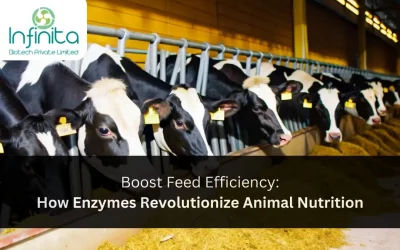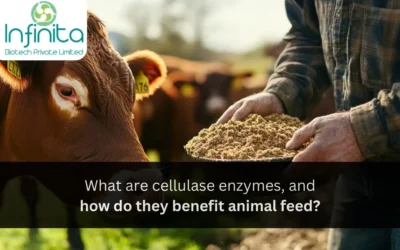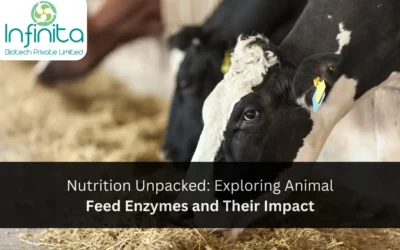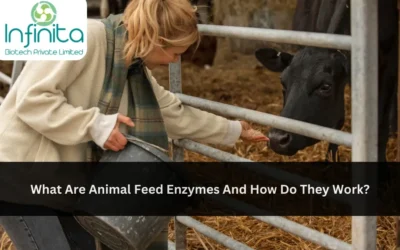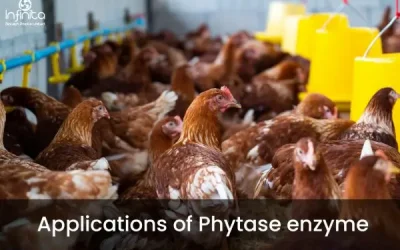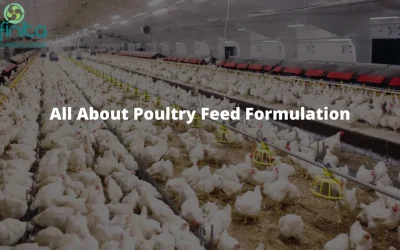Introduction
The realm of animal nutrition has been revolutionized by biotechnology, offering groundbreaking solutions to enhance feed efficiency and animal health.
This article delves into the latest biotech advancements in animal feed, exploring their impact on livestock, the environment, and the global economy.
Historical Context
Animal feed has evolved significantly from traditional foraging to scientifically formulated diets. The inception of biotechnology in animal nutrition dates back decades, initially focusing on improving feed crop yields and quality.
Discover more about the role of enzymes in this evolution by visiting our blog on the uses of enzymes in animal feed.
Current Biotech Trends in Animal Feed
-
Genetically Modified Feed Ingredients:
The integration of GMOs in animal feed has been a game-changer, improving nutritional value and crop resistance to pests and diseases.
-
Probiotics and Prebiotics:
These supplements enhance gut health in livestock, leading to better nutrient absorption and overall health.
-
Enzyme Technology:
Enzymes are now routinely added to feed to break down fibrous plant materials, increasing the digestibility and nutritional value of the feed.
Impact of Biotechnology on Animal Health
Biotech feeds have significantly improved animal health by:
-
Enhancing Nutritional Value:
Some biotech feeds are designed to boost the immune system of animals.
-
Improving Digestive Health:
Probiotics and prebiotics maintain a healthy gut flora, crucial for livestock well-being
-
Disease Resistance:
Some biotech feeds are designed to boost the immune system of animals.
Environmental Implications
Biotech in animal feed plays a pivotal role in:
-
Reducing the Environmental Footprint:
GMO crops often require fewer pesticides and herbicides, lessening environmental impact.
-
Sustainable Feed Production:
Biotech advancements lead to more sustainable feed production, conserving resources and reducing waste.
Economic Aspects
-
Cost-Effectiveness:
Biotech feeds can be more economical in the long run, reducing the overall costs of livestock management.
-
Global Feed Market Impact:
The adoption of biotech feeds has reshaped the global feed market, driving innovation and competition.
Ethical and Regulatory Considerations
-
Ethical Debates:
The use of GMOs in animal feed continues to spark ethical debates regarding animal welfare and consumer rights.
-
Regulatory Frameworks:
Strict regulations govern the use of biotech in animal feed, ensuring safety and compliance.
Future Directions
Emerging innovations like CRISPR gene editing and novel microbial feed additives are set to further transform animal nutrition. The next decade promises even more efficient and sustainable feed solutions.
Case Studies
Real-world examples include the use of enzyme-enhanced feeds in poultry to improve egg production and the successful implementation of probiotic-rich diets in aquaculture.
Conclusion
Biotechnology in animal feed is a dynamic field that holds immense potential for improving animal health, environmental sustainability, and economic efficiency. As we look to the future, these advancements promise to continue shaping the landscape of animal nutrition.
FAQs:
What are the main types of biotech advancements in animal feed?
Genetically modified ingredients, probiotics, prebiotics, and enzyme technologies are key advancements.
How do biotech feeds impact animal health?
They improve nutritional value, digestive health, and disease resistance.
Are genetically modified animal feeds safe?
Yes, when regulated and used appropriately, they are considered safe.
What is the role of enzymes in animal nutrition?
Enzymes enhance the digestibility and nutritional efficiency of feed.
How does biotech in animal feed contribute to sustainability?
It leads to more efficient use of resources and reduced environmental impact.
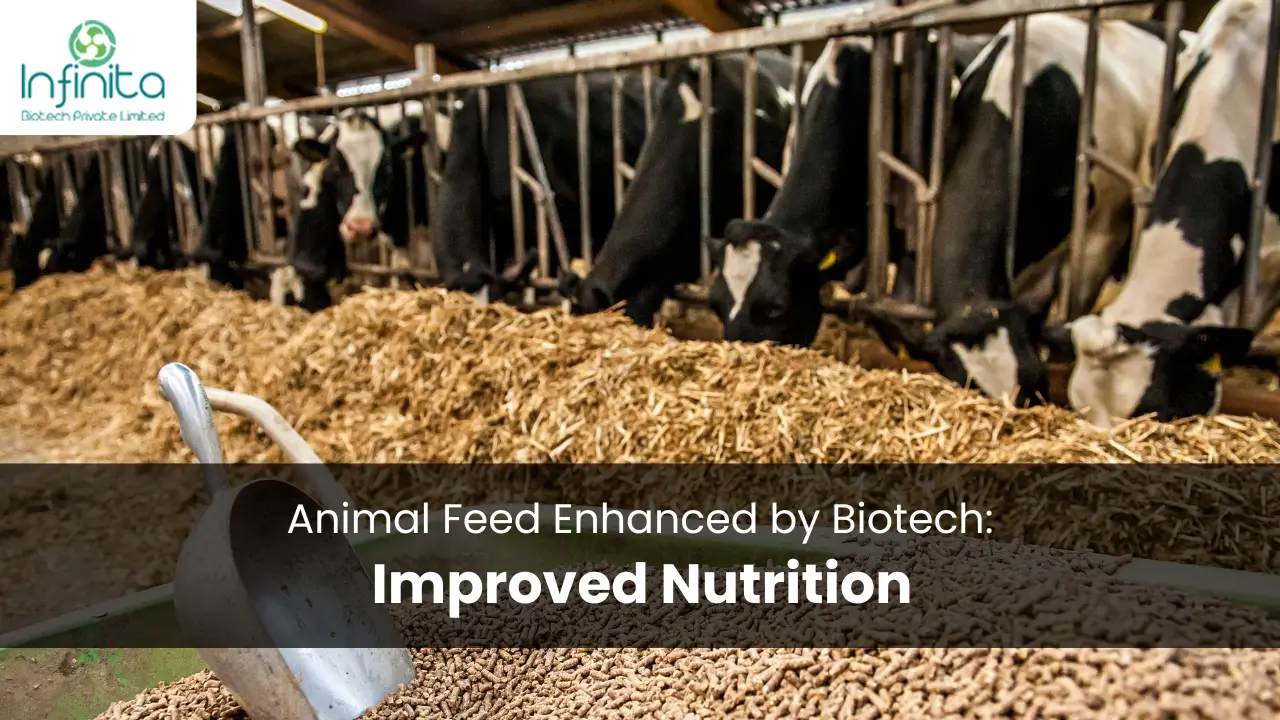
 Summarize this Article with AI
Summarize this Article with AI
